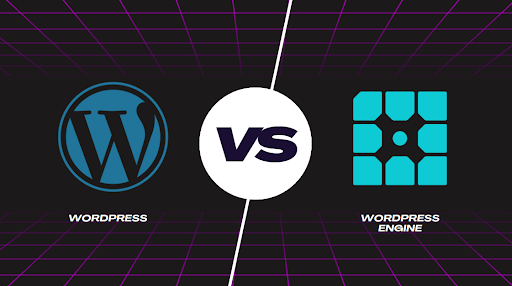WordPress Vs WP Engine: Battle for open source control and money

Did you know that the WordPress ecosystem is the driving force behind over 43% of the web? Despite this popularity, WordPress is at the centre of a controversy. The clash between WordPress and WP Engine, a prominent managed hosting provider.
This blog will cover the battle for open-source control and money.
This blog is written by Akshat Virmani at KushoAI. We're building the fastest way to test your APIs. It's completely free and you can sign up here.
What is WordPress & WP Engine?
WordPress: A free and open-source content management system (CMS) that allows users to manage and create websites.
WP Engine: A managed hosting platform specialising in WordPress sites and has built a successful business around providing optimised hosting, tools, and support for WordPress users.
The Root Cause of the Conflict
In a conference, the Founder of Automattic, the parent company of WordPress, Matt Mullenweg, called the WP engine “cancer to WordPress”, and many are saying that Automattic is doing open source dirty. But why did this controversy come about?
The drama started when Automattic, the company that owns the WordPress trademark, sent a trademark license agreement to WP Engine demanding a royalty of 8% of its revenue. WP Engine refused to sign the agreement as the abbreviation “WP” didn't come under the trademark and looked a little weird as WordPress itself is an open-source project, and the two companies have been engaged in a public feud ever since. There were a lot of lawsuits and allegations back and forth.
The most recent development in the drama is the addition of a new checkbox to the WordPress.org login page that asks users to confirm that they are not affiliated with WP Engine.
This checkbox, as shown in the screenshot below, has been widely criticised as overly intrusive and potentially harmful to WP Engine's customers.
The history of the relationship between WordPress and WP Engine
WP Engine was one of the first companies to offer managed WordPress hosting, and it quickly became the best choice for organisations. Matt was one of the first investors of WP Engine, and then WP Engine was sold to SilverLake, which might be the biggest reason that started this feud.
The tension between Matt and WP Engine continued to escalate in the following years. In September 2024, Automatic sent WP Engine a trademark license agreement demanding a royalty of 8% of its gross revenue. WP Engine refused to sign the agreement, and the two companies have been engaged in a public feud ever since.
There can be many reasons why Mullenweg started this feud; some of the top reasons can be:
- After being acquired by SilverLake, WP Engine couldn't contribute much to the WordPress ecosystem and was focused on making money using WordPress.
- WP Engine improperly uses WordPress's trademark.
- WP Engine forks from WordPress and gives the users a bad user experience that can also affect WordPress.
After some Ceass and Desist from both parties and after WP Engine refused to sign the Royalty agreement on 25th September, WP Engine got banned from WordPress.org, meaning that any new WordPress updates could not be installed in WP Engine’s platform or add plugins from the WordPress ecosystem. This will have a direct impact on the WordPress developers and users. It feels like Matt is ready to take down WP Engine with their own competing WP Engine platform, WordPress.com.
In addition, this feud has damaged WordPress's reputation. The WordPress trademark is one of the most valuable brands in the world, and it is important to protect it. The current drama could make it difficult for WordPress to attract new users and partners.
What can community members do?
Here are some of the things that the WordPress community can do to help resolve the feud:
New Trademark: The WordPress community is also working to create a new trademark license agreement that would be more acceptable to Matt Mullenweg and WP Engine.
Spread the word: Let your friends and colleagues know about the feud and encourage them to get involved.
Contact Matt Mullenweg and WP Engine: Let them know that you are concerned about the feud and that you want them to find a way to resolve it peacefully.
Support WP Engine: WP Engine is a valuable member of the WordPress community, and it is important to show our support for them during this difficult time.
Conclusion
I believe that the WordPress community can find a way to resolve the current feud and move forward together. I would also like to add that it is important for the WordPress community to remain united during this difficult time. We are all part of the same ecosystem, and we need to work together to make sure that it continues to thrive.
This blog is written by Akshat Virmani at KushoAI. We're building an AI agent that tests your APIs for you. Bring in API information and watch KushoAI turn it into fully functional and exhaustive test suites in minutes.

Member discussion